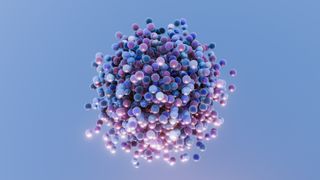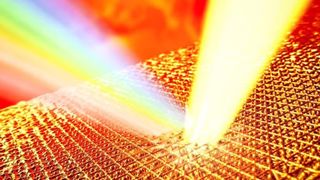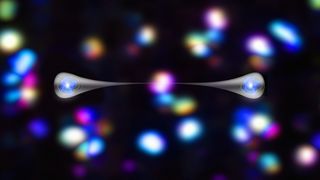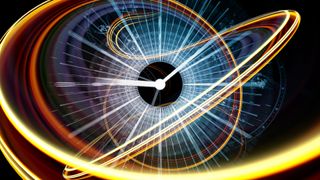atoms
Latest about atoms

What are the 'magic numbers' in nuclear physics?
By Victoria Atkinson published
Why do some elements decay in minutes, while others last billions of years? Certain "magic numbers" of nuclear particles may make all the difference.

Why can't we walk through walls if atoms are mostly empty space?
By Larissa G. Capella published
Most of an atom is empty space, so why does some matter feel solid? Two physics principles explain why.

Scientists heat gold to 14 times its melting point — without turning it into a liquid
By Victoria Atkinson published
Scientists have used an ultrafast laser to heat solid gold to 14 times its melting point without turning the metal into liquid.

Scientists just recreated the universe's first ever molecules — and the results challenge our understanding of the early cosmos
By Perri Thaler published
In a first, scientists have recreated the formation of the first ever molecules in the universe to learn more about early star formation.

Lightning on Earth is sparked by a powerful chain reaction from outer space, simulations show
By Ben Turner published
A new model may have finally solved where storm clouds get their missing energy.

Can other metals be turned into gold?
By Victoria Atkinson published
Other metals might be worth their weight in gold, but can they be turned into it?

Where do atoms come from? A physicist explains.
By Stephen L. Levy published
Almost everything on Earth is made up of atoms, but where do these fundamental building blocks come from?

Physicists force atoms into state of quantum 'hyper-entanglement' using tweezers made of laser light
By Alan Bradley published
By controlling individual atoms, researchers have demonstrated a way to turn previously unwanted atomic motion into an advantage.

Physicists capture 'second sound' for the first time — after nearly 100 years of searching
By Ben Turner published
First theorized in 1938, heat's wave-like flow through superfluids, known as "second sound", has proven difficult to directly observe. Now, a new technique has finally done it, and could be used to study neutron stars and high-temperature superconductors.
Get the world’s most fascinating discoveries delivered straight to your inbox.
 Live Science Plus
Live Science Plus






